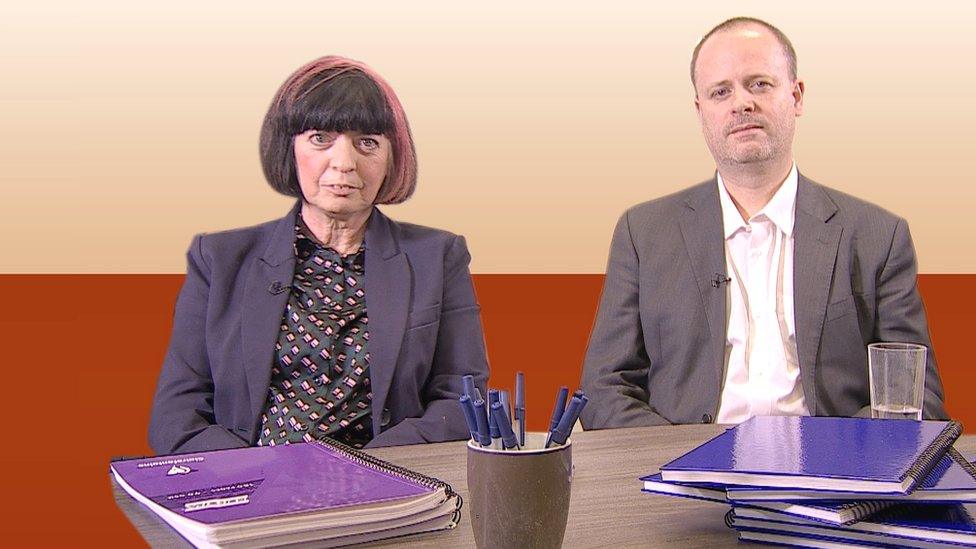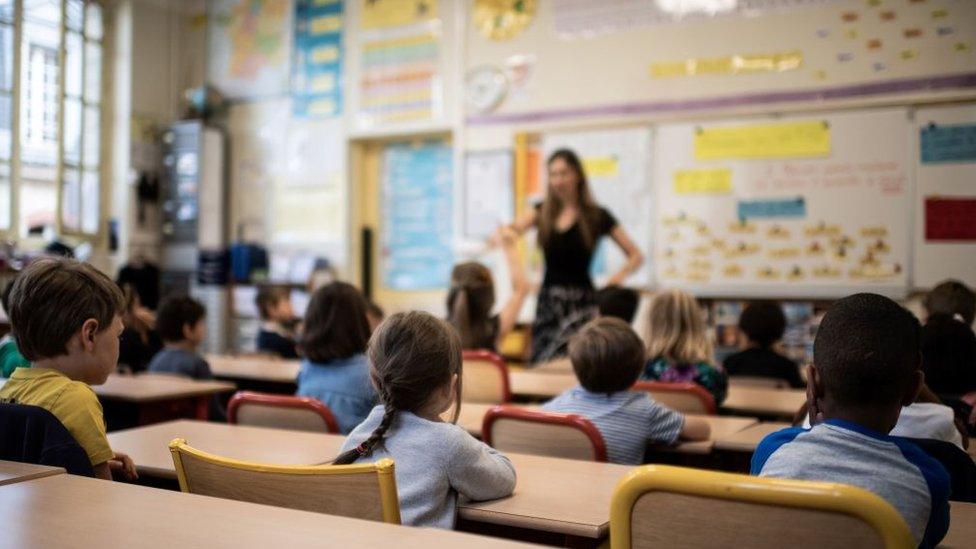'Some teachers in Norfolk need weekend jobs to pay rent'
- Published

Teachers were given a 5% pay increase in 2022 with more on offer for those on low incomes, but the NEU says that is not in line with inflation
Some members of staff have to work "second jobs at the weekend" to make ends meet, a primary school teacher about to strike has told the BBC.
Two representatives of the National Education Union (NEU), who teach at schools in Norfolk, have spoken of funding and recruitment issues.
Gawain Little, who works at a Norwich primary school, said teaching assistants had quit to work at Aldi.
The government said strike action would damage the education of pupils.
Members of the NEU are due to take part in a strike over pay on Wednesday in England and Wales.
Most state school teachers in England and Wales had a 5% rise in 2022, but the NEU says this actually equates to a pay cut because of high inflation.
The Education Secretary Gillian Keegan has said teachers do not need to strike to get "attention".

Members of the NEU are due to take part in a strike in England and Wales on Wednesday
In the East of England, more than 30,000 teachers are set to go on strike, and it is likely to affect about 3,000 schools.
Mr Little said: "I know teachers at the beginning of their career who have second jobs at the weekend, who work shifts in a local pub in order to earn enough to pay the rent.
"I know teachers who are teaching part-time who struggle to make ends meet - that has an impact not only on those who are teaching, but on the numbers leaving the profession and people who are not coming in to teach," he said.
"Support staff in schools, our teaching assistants are paid even less and the impact on them is absolutely huge.
"A head was saying just the other day they've lost two of their best teaching assistants because Aldi is paying a couple of pounds more an hour," he added.
'Last resort'
Siobhan O'Connor, who teaches English at a secondary school in Wymondham, said: "We have teachers in our school who are finding it difficult to find the fuel money to drive to work.
"There are other teachers who are right at the beginning of their profession who want to learn to drive to work who are not able to afford those driving lessons, and still facing very long bus journeys.
"Most young teachers are not thinking about going abroad on holiday.
"And for teachers coming in to teaching a little bit later, who have had children and are joining the profession a little later, it's extremely difficult to meet the mortgage payments, the rent payments, and the same as everyone, to meet the energy payments."
In answer to concerns that the strike was likely to affect pupils, Ms O'Connor said: "It is a last resort - teachers have not been on strike for 12 years now; it is not someone we do easily.
"We know better than anybody the damage that it does for children not to be in the classroom.
"Parents know as well and parents I think will understand that what we are fighting for is something that will benefit their own children.
"The disruption to their lives without proper funding in education would be much, much bigger."
A Department for Education spokeswoman said: "Strike action is highly damaging to children's education, particularly following the disruption that children have experienced over the past two years.
"As part of our ongoing support to school leaders to do everything they can to keep as many children in school as possible we have requested information from schools to help inform this work."
You can see more on this story on Politics East on BBC One on Sunday, 29 January at 10:00 GMT, with it also available on BBC iPlayer afterwards.

Find BBC News: East of England on Facebook, external, Instagram, external and Twitter, external. If you have a story suggestion please email eastofenglandnews@bbc.co.uk, external
- Published17 January 2023

- Published4 January 2023
